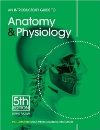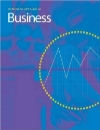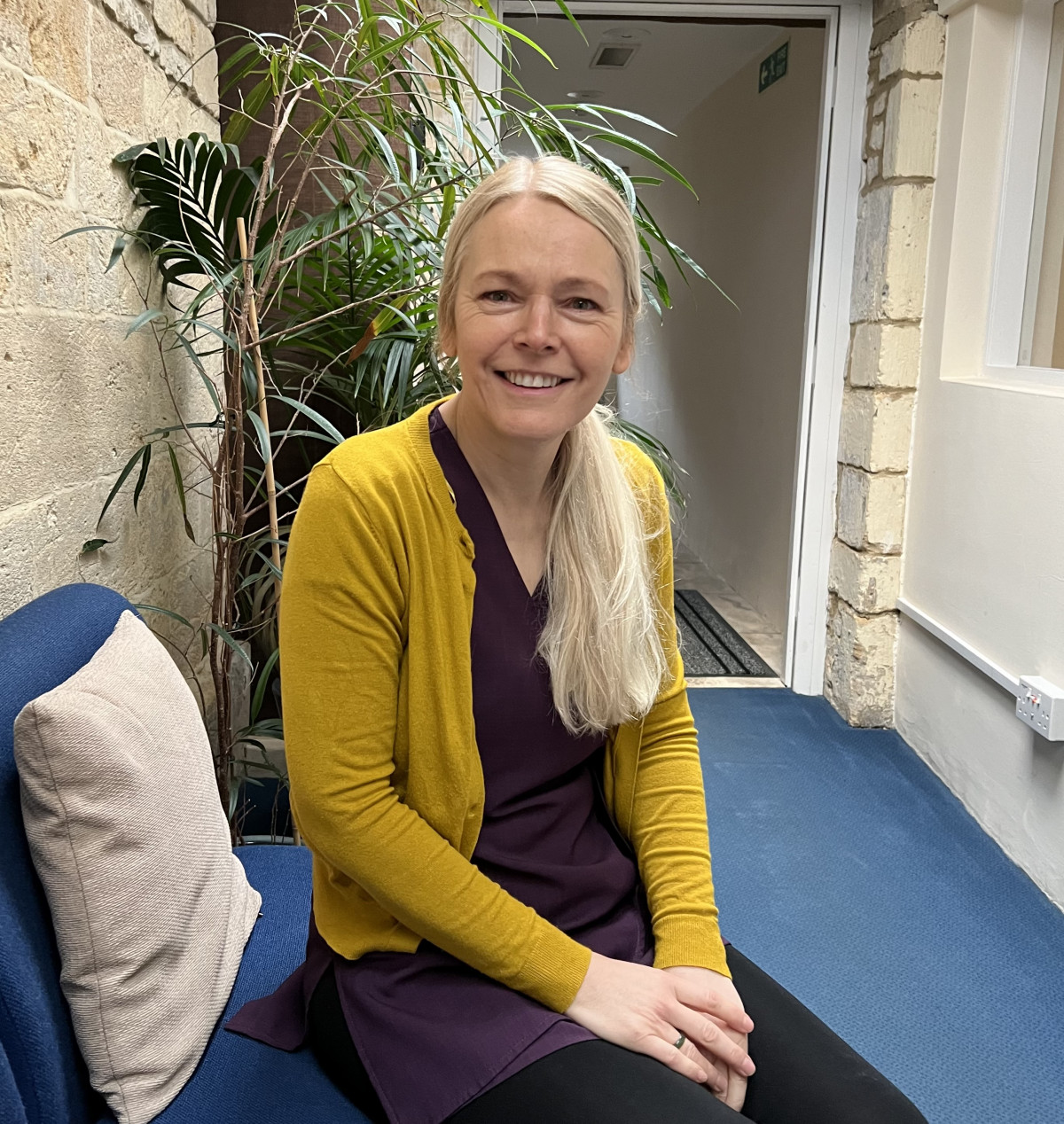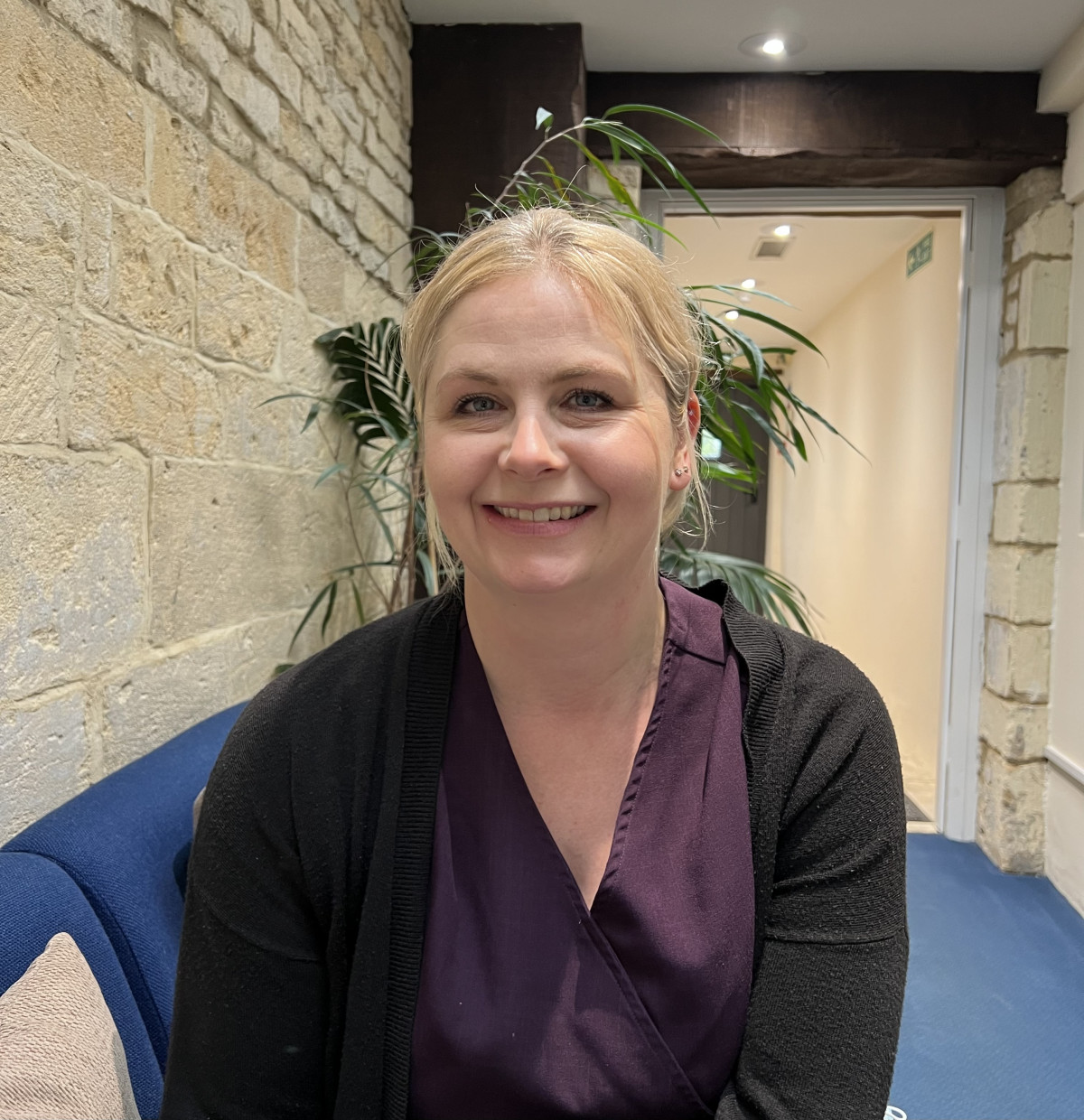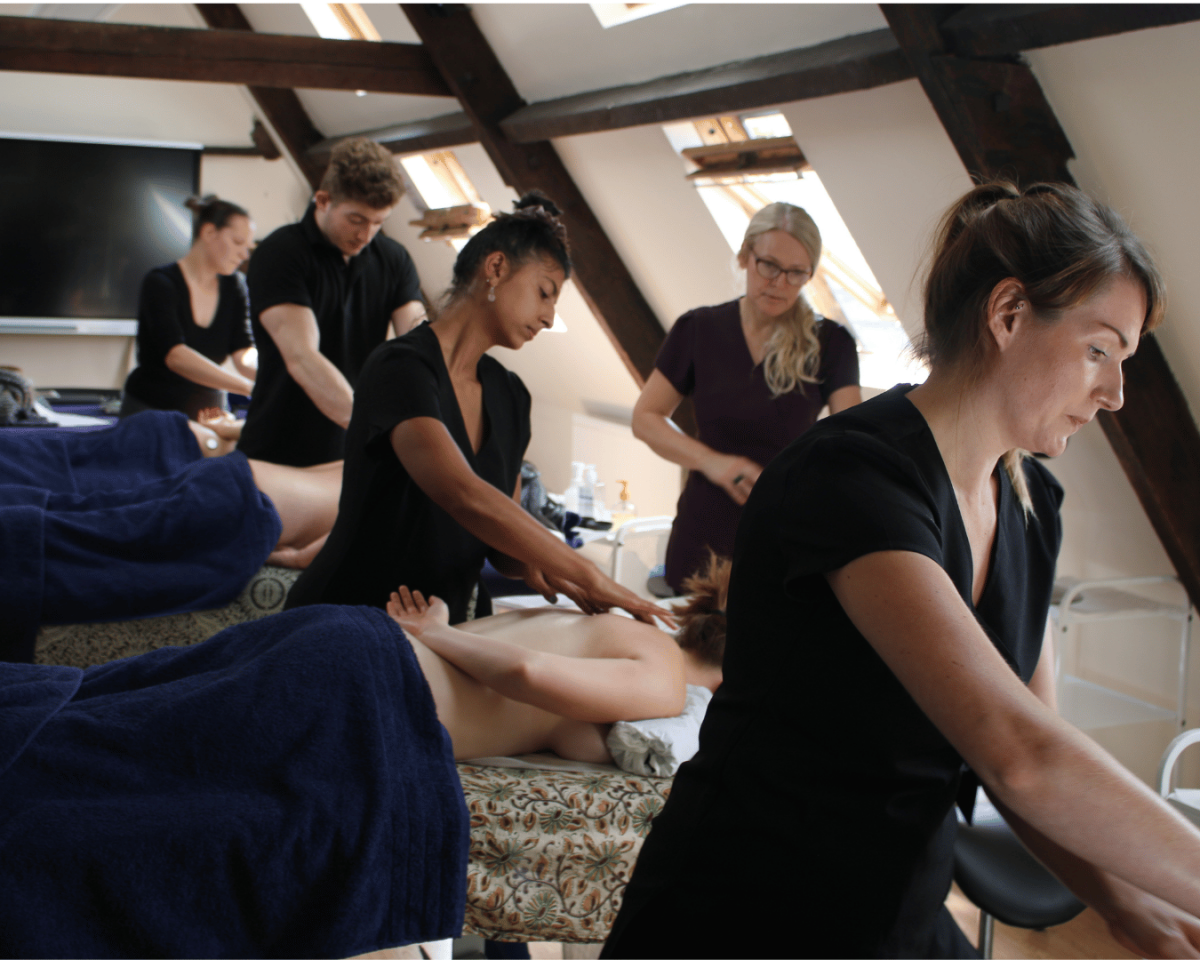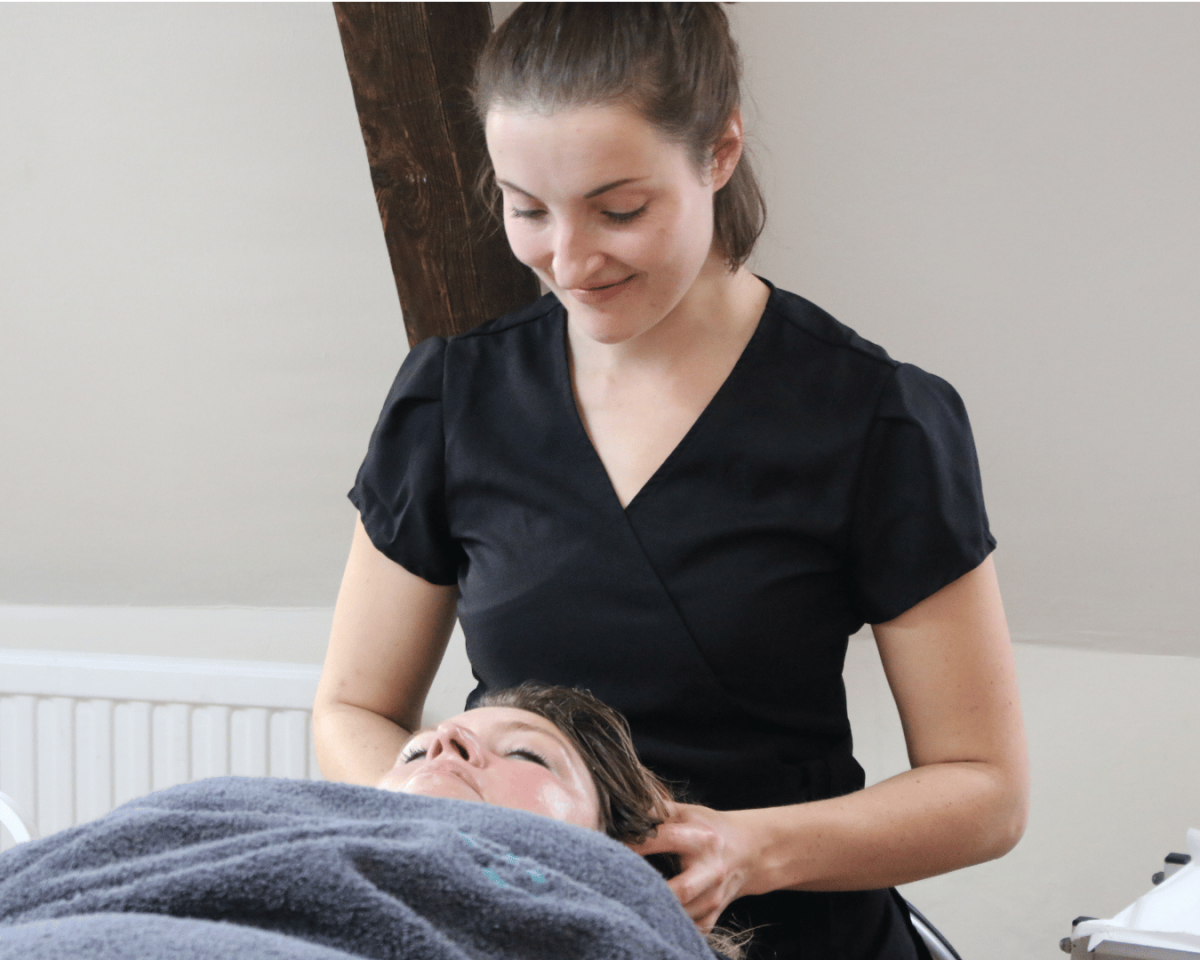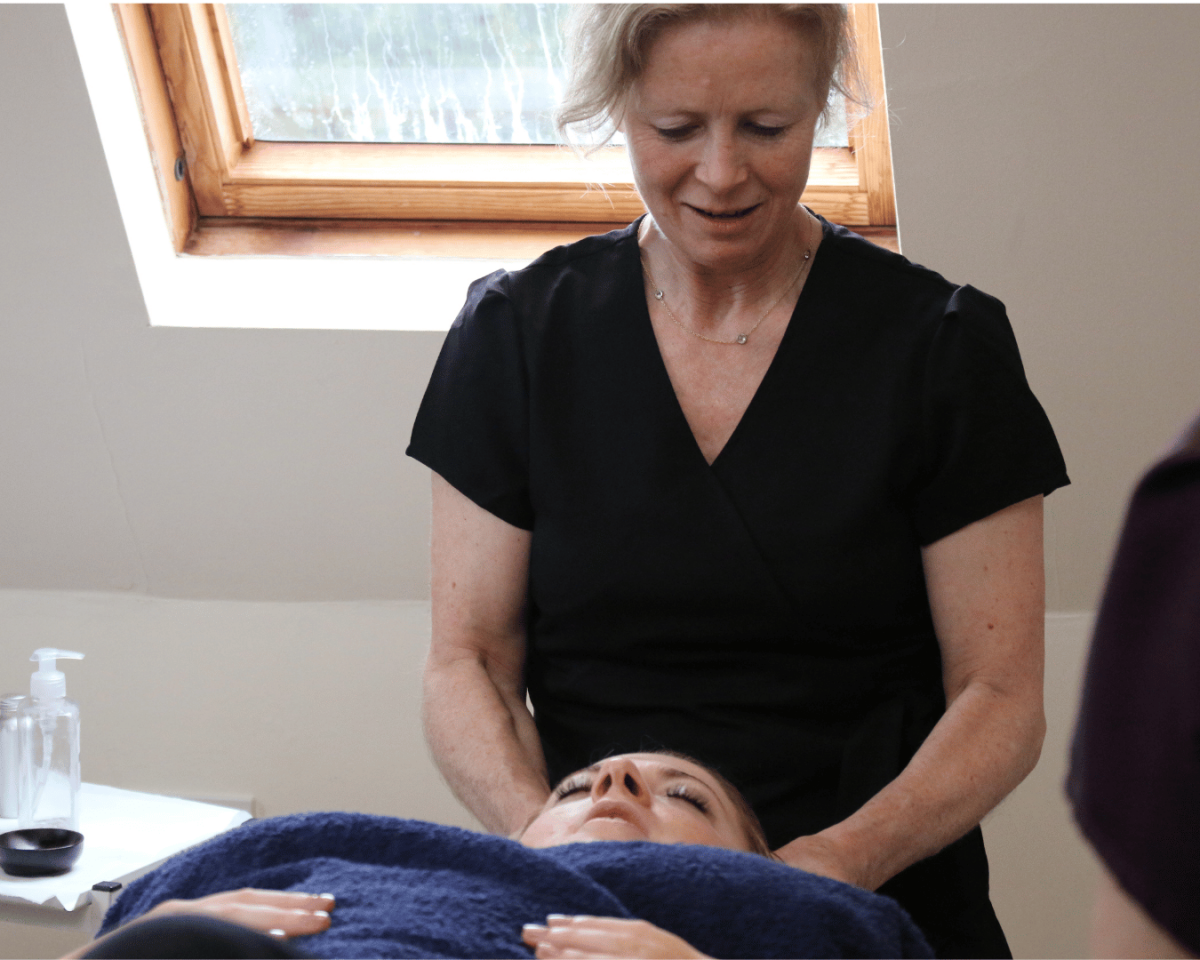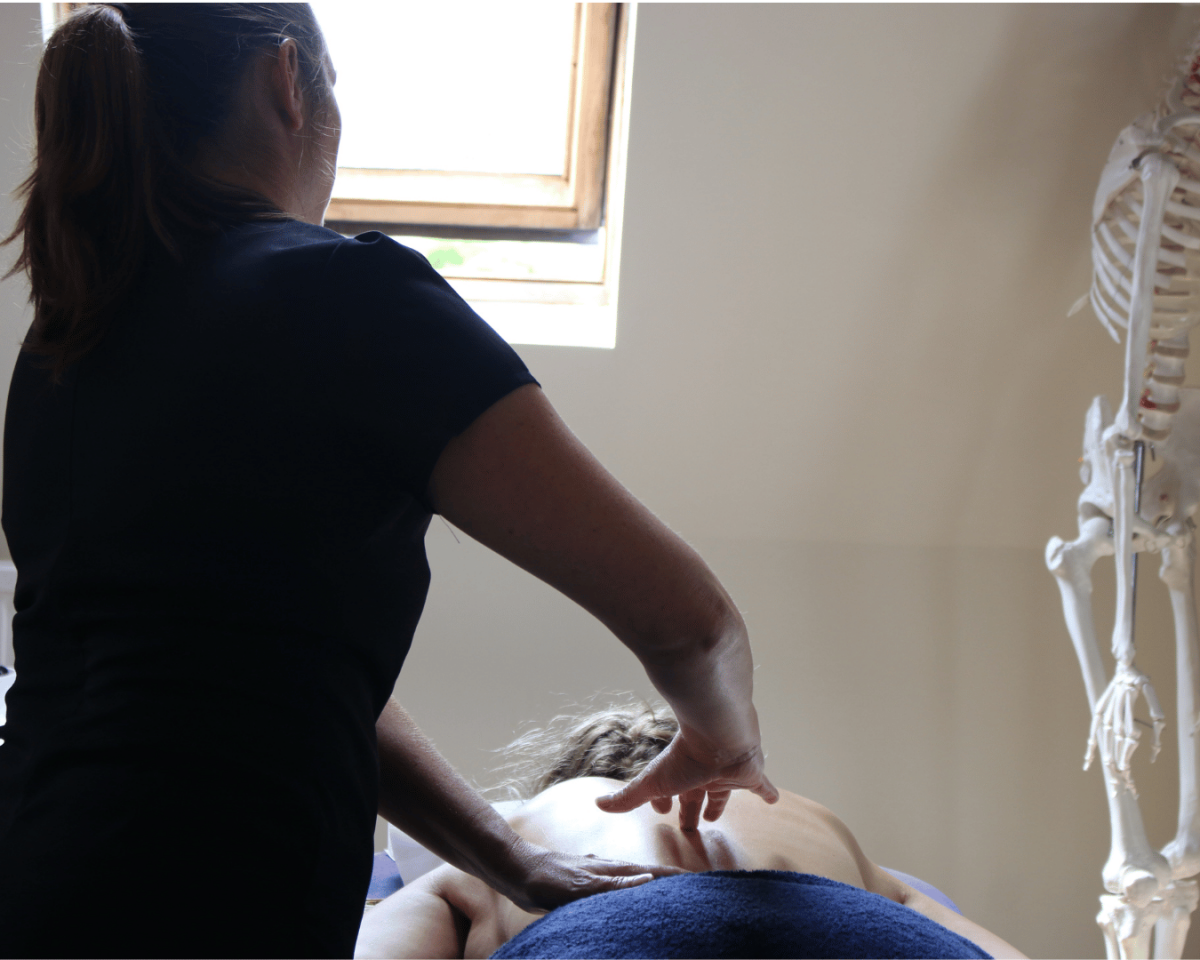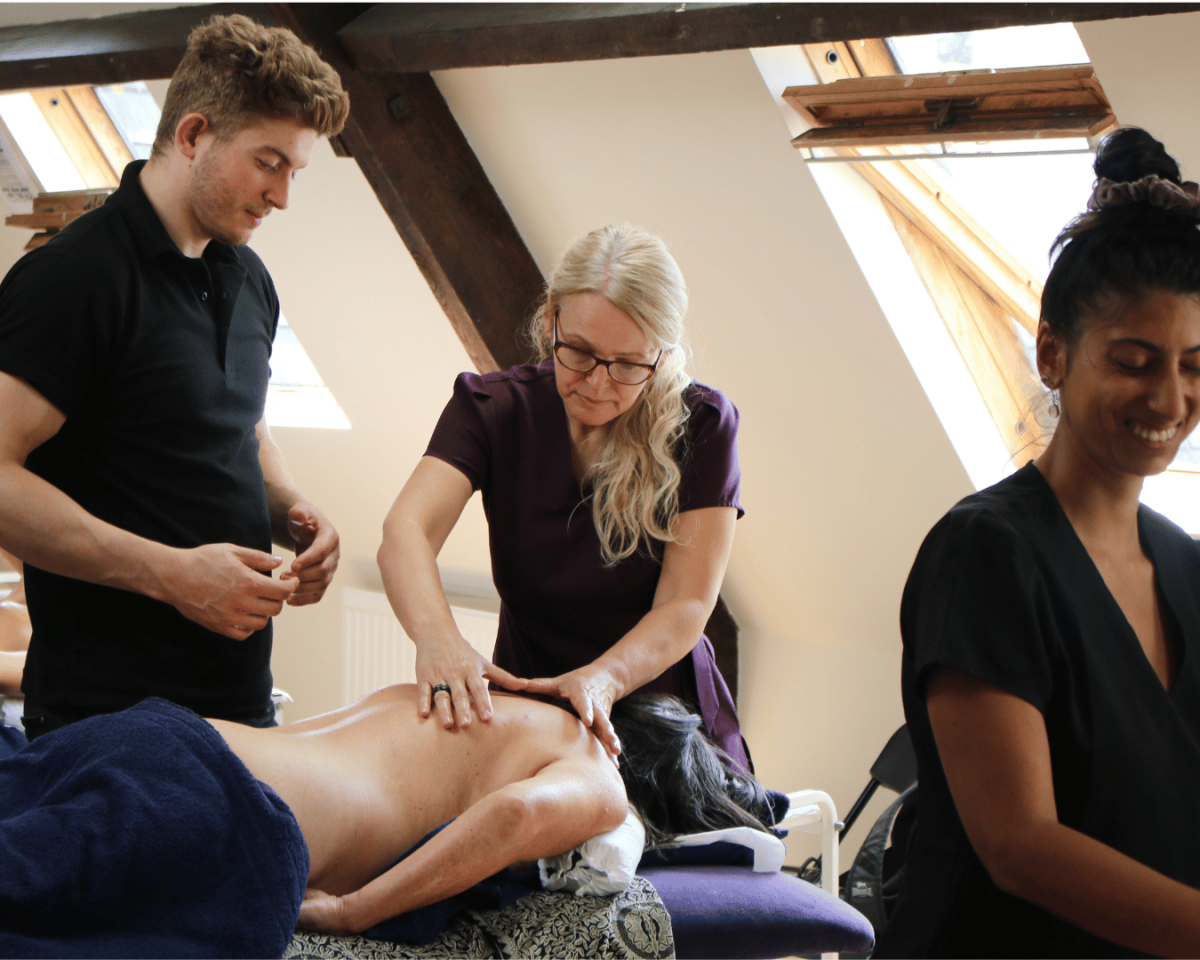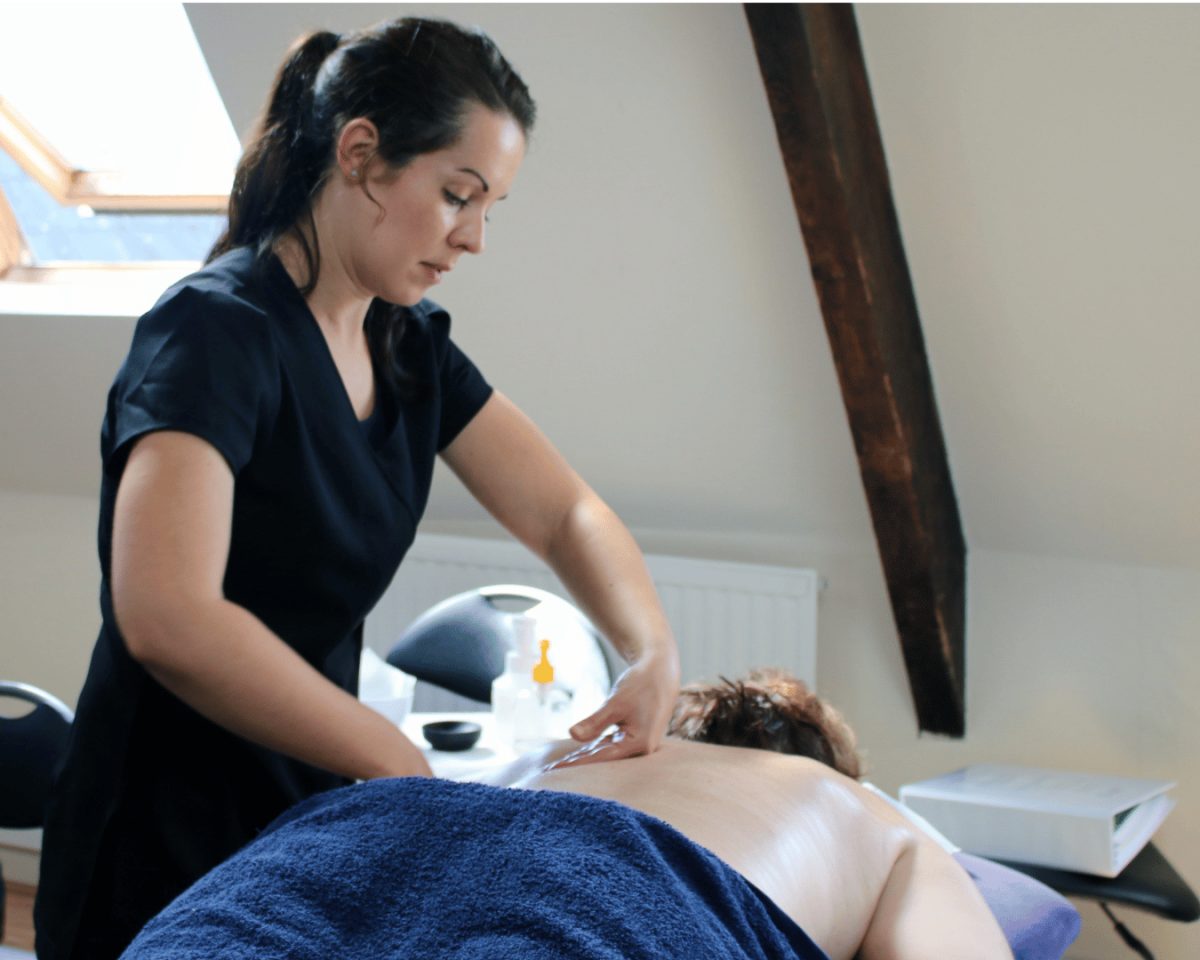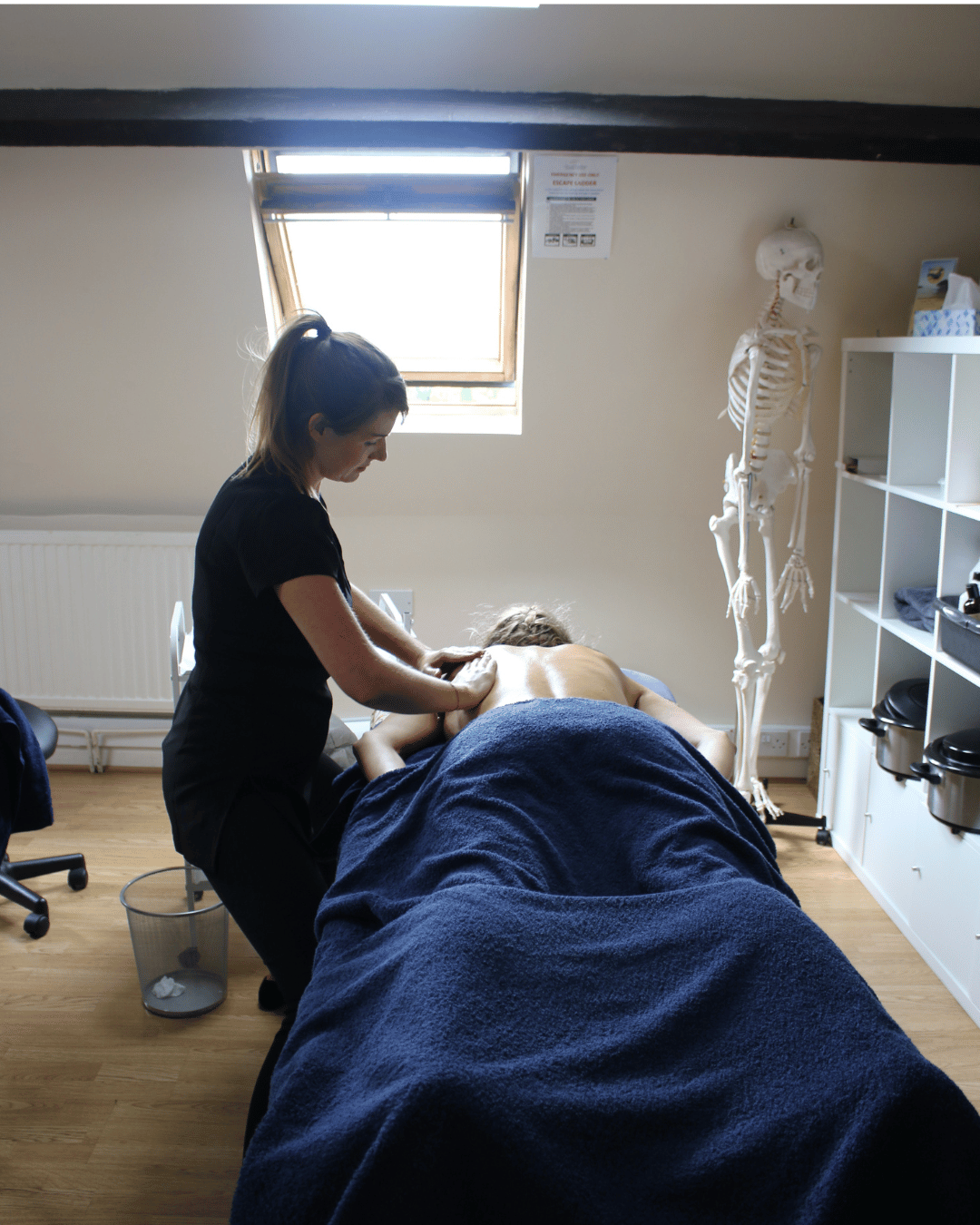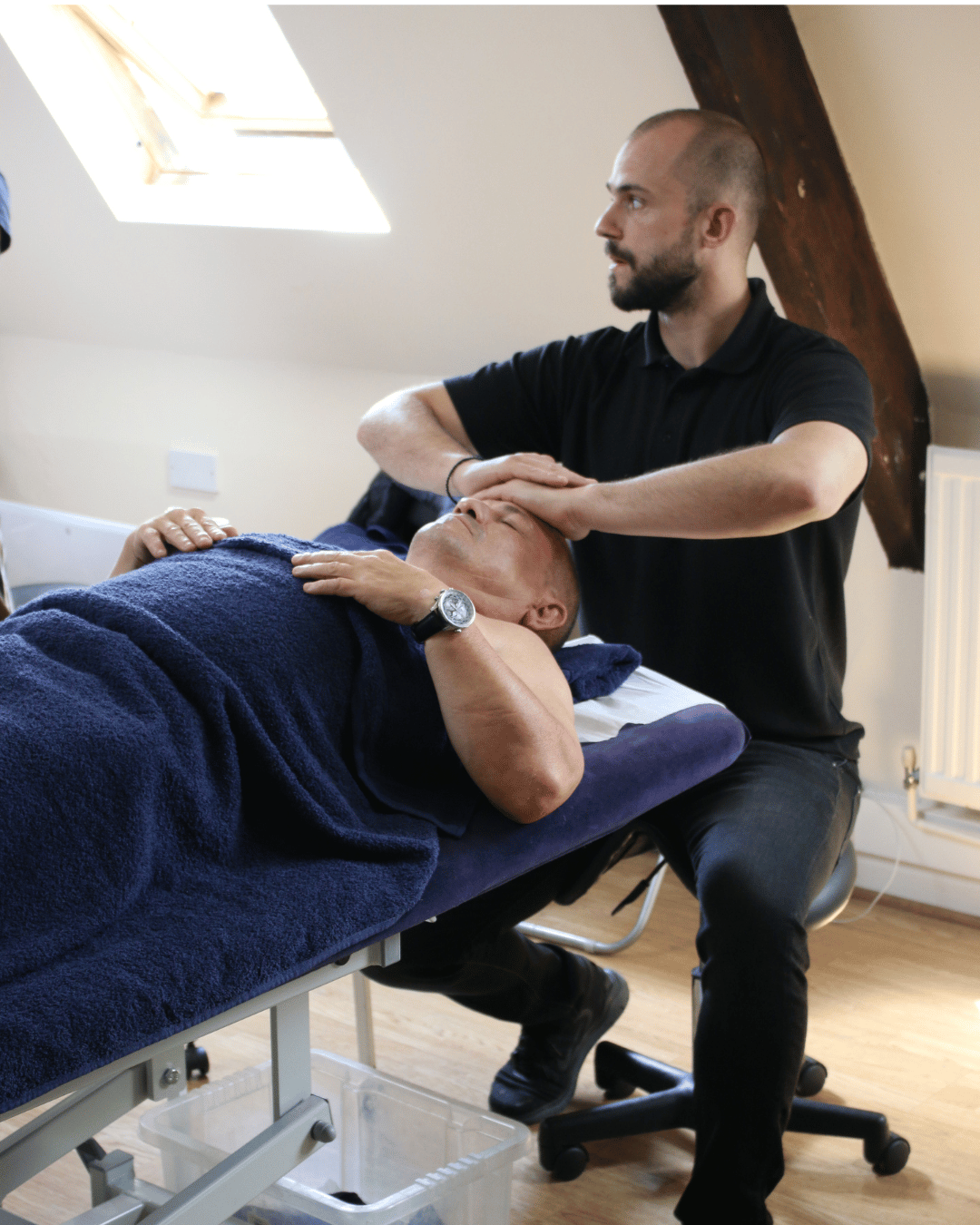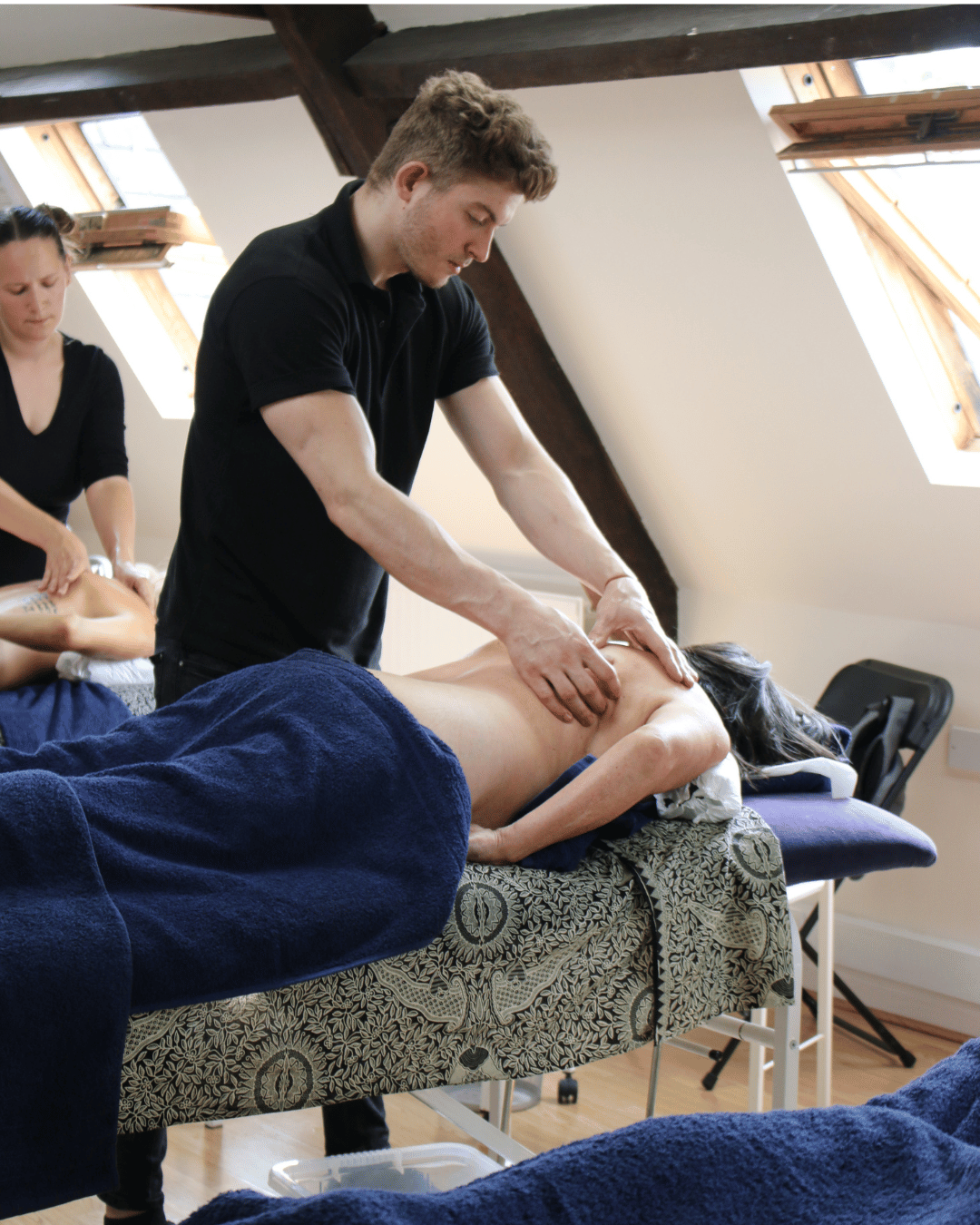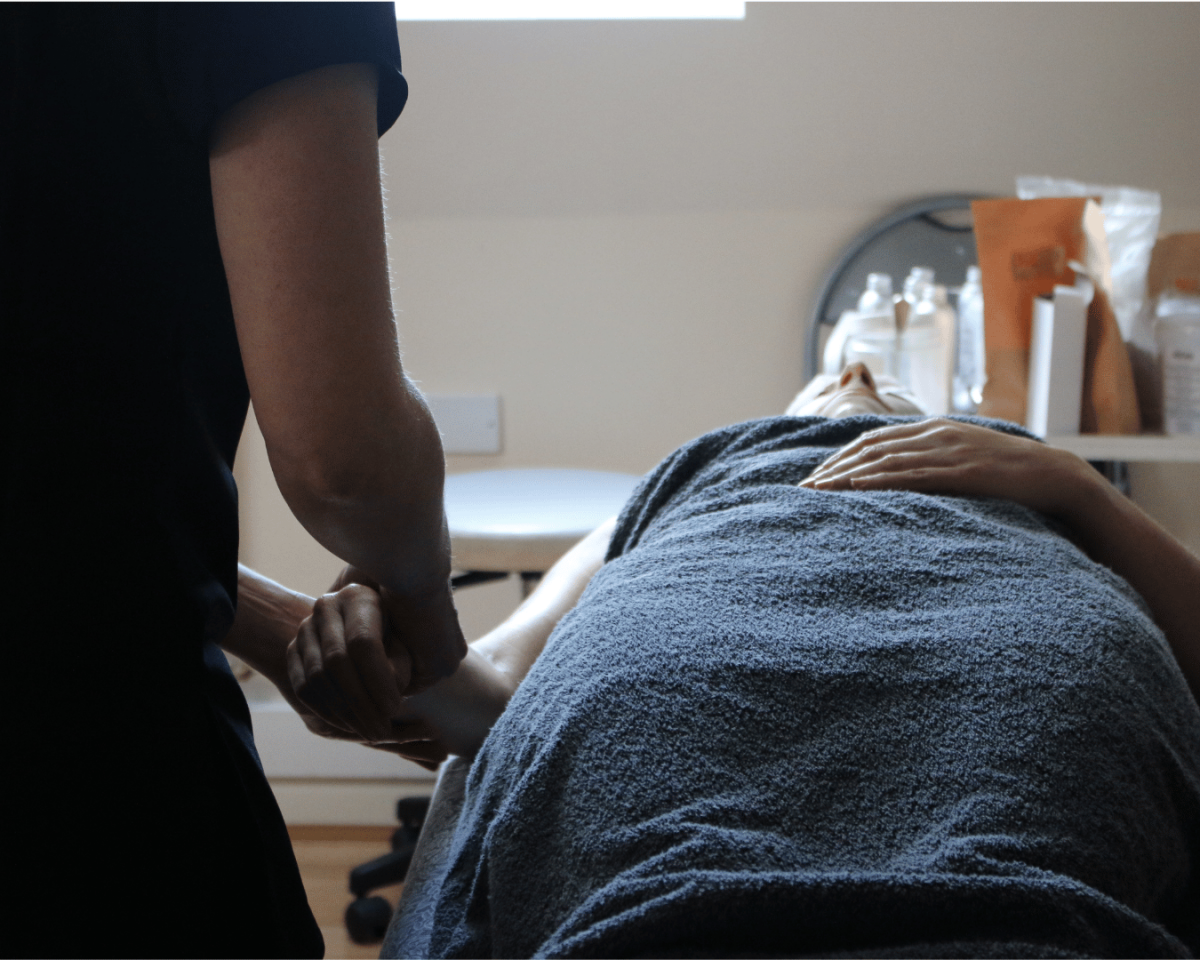Course Overview
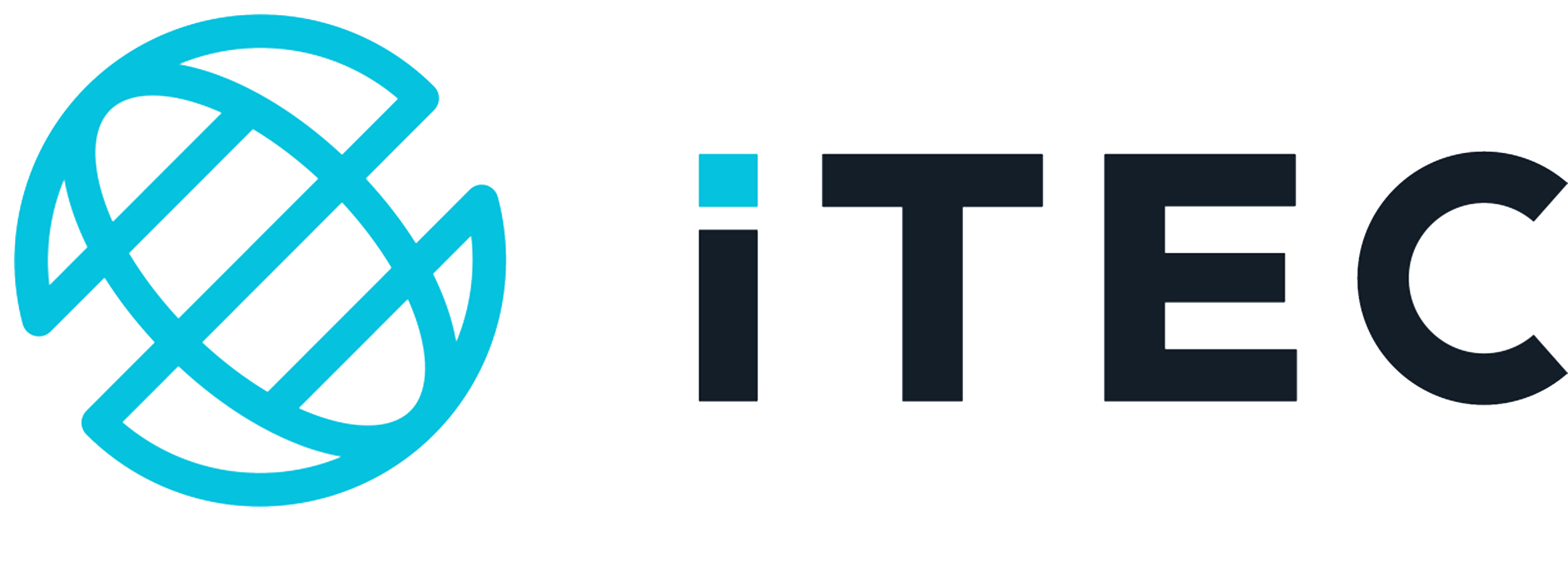 Professional, iTEC Accredited Massage Courses
Professional, iTEC Accredited Massage Courses
Master Holistic / Swedish massage with a strong foundation in Anatomy and Physiology, meeting the industry's highest standards.
Train from a complete beginner into a professional massage therapist with an internationally recognised ITEC qualification, opening doors to diverse career opportunities:
- Establish your own private practice as a self-employed therapist.
- Thrive in salons, clinics, health clubs, spas, yachts, and hotels.
- Contribute to healthcare settings like the NHS and hospices.
Strive for excellence as you learn to create a nurturing space for your clients, revitalising their well-being, and addressing their unique needs. Our comprehensive training covers full-body massage techniques, enabling you to design tailored routines and treatment plans, from initial consultation to post-treatment care.
Develop into a skilled and dynamic therapist with a deep understanding of the body and its systems. Whether you're embarking on a new career or seeking an additional income stream, successful completion of this course will certify you as a professional massage therapist, eligible for public practice insurance and professional association membership.
Moreover, as a qualified therapist, you can further expand your skill set through Continued Professional Development (CPD) short courses. Our offerings include 1 and 2-day courses like pregnancy massage, hot stone therapy and trigger point therapy, empowering you to create a unique and exciting business in this thriving industry.
- Online Learning: Study Level 3 Anatomy & Physiology and Massage Theory through interactive e-learning with presentations, videos, materials, and quizzes. Classroom options available for A&P (which can be selected during booking).
- Classroom Training: 5 days of hands-on classroom instruction to reinforce theory, acquire practical skills, and master consultation processes.
- Personalised Support: Benefit from one-to-one video calls with your tutor upon request.
- Community Access: Join 'Thursday Evenings' to practice, learn from peers, and connect with fellow therapists.
- Small Class Sizes: Experience maximum support in small class groups (8-10 students max).
- All-Inclusive: Your course cost covers ITEC Registration and final exam fees.
- Career Resources: Access our private Facebook group with local job listings and equipment options.
- Business Building: Attend free workshops to enhance your entrepreneurial skills.
For detailed information, please refer to the course syllabus tab.
Customise Your Anatomy & Physiology Learning Experience:
At the Cotswold Academy, we offer you the flexibility to choose how you'd like to study the Anatomy & Physiology (A&P) component of your course. By default, this unit is available for e-learning, but you have the option to switch to classroom learning and select your preferred attendance dates.
If you opt for e-learning, you'll gain instant access to our comprehensive online A&P curriculum. Designed to be self-paced, you can delve into the materials at your convenience. This means you can explore the A&P unit before, during, and after your classroom contact days. Our e-learning package includes a variety of resources, such as videos, interactive presentations, written materials, and quizzes. Additionally, you'll have access to Zoom catchup sessions every three weeks, offering valuable support specifically tailored to the A&P portion of your course.
Access to your Massage Course Learning Materials:
Furthermore, you'll have immediate access to your Massage online theory study. This section is thoughtfully designed to introduce you to crucial aspects, including history, benefits, and contraindications of Massage. We recommend that students spend approximately 2-4 weeks before their classroom dates to review this learning content.
For your 5 days of classroom attendance, you have two options to choose from:
- Fast Track: This option allows you to attend 5 consecutive classroom days, granting you the opportunity to start your coursework right after completing your classroom sessions.
- Saturdays: When selecting a course date option for Saturdays, you will attend 5 Saturday classroom days, usually every other week. You can begin your coursework towards the end of your classroom days.
Explore the 'Assessment Criteria' tab for a detailed breakdown of coursework and examination requirements. At the Cotswold Academy, we empower you to tailor your learning journey according to your needs and preferences.
) EDIT 3.png)

